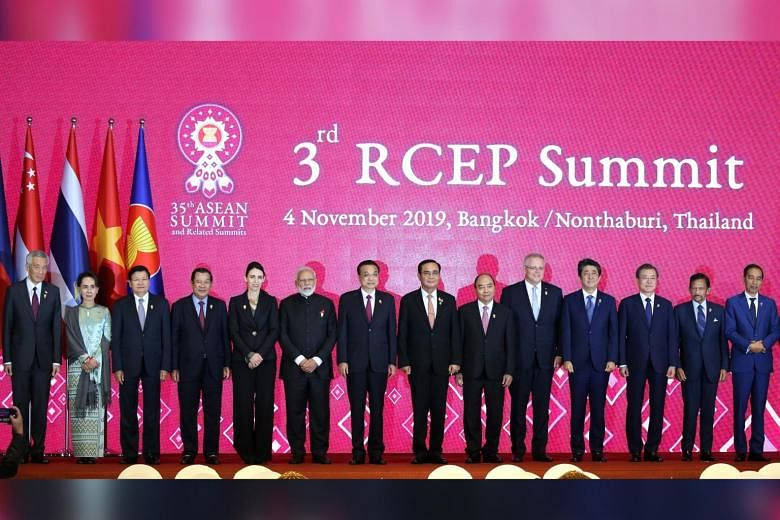NONTHABURI (Thailand) - A 16-country mega trade pact would have made a fine present for 52-year-old Asean, but it was not to be. On Monday (Nov 4), Thailand's hope to announce the preliminary conclusion to the Regional Comprehensive Economic Partnership while it was hosting the Asean summit were dashed by a very reluctant India.
Naysayers will add that to the string of Asean's perceived failures as it struggles for relevance in a tough neighbourhood riddled with complex rivalries.
Already a subscriber? Log in
Read the full story and more at $9.90/month
Get exclusive reports and insights with more than 500 subscriber-only articles every month
ST One Digital
$9.90/month
No contract
ST app access on 1 mobile device
Unlock these benefits
All subscriber-only content on ST app and straitstimes.com
Easy access any time via ST app on 1 mobile device
E-paper with 2-week archive so you won't miss out on content that matters to you


